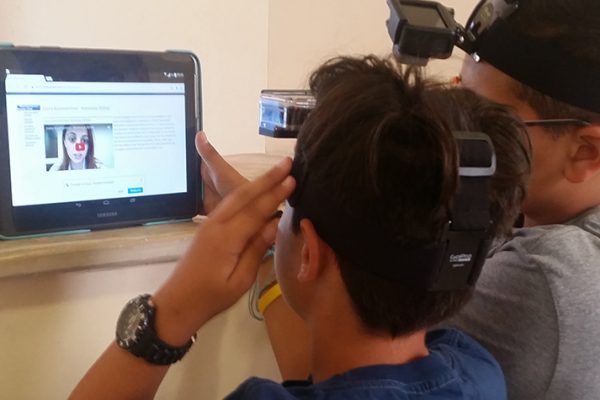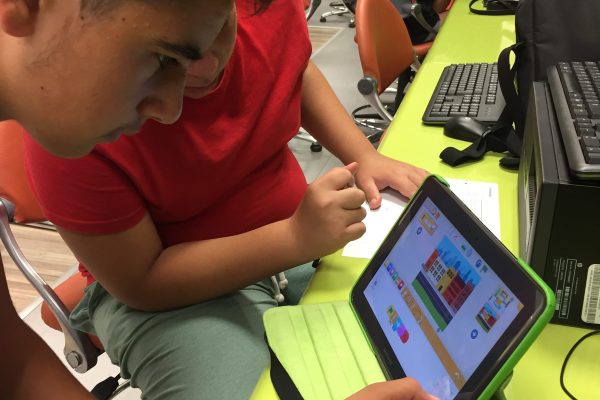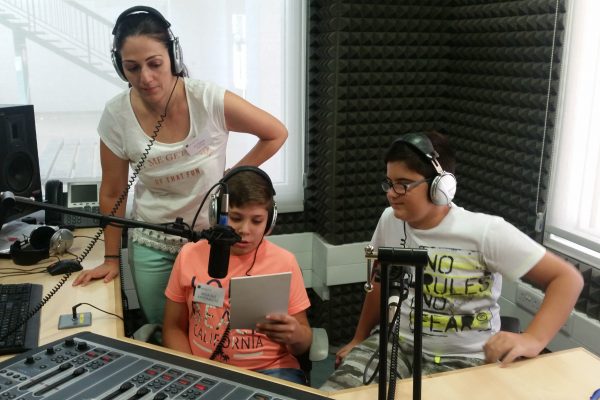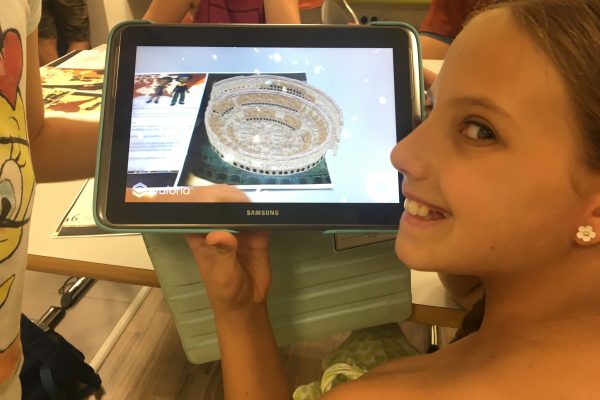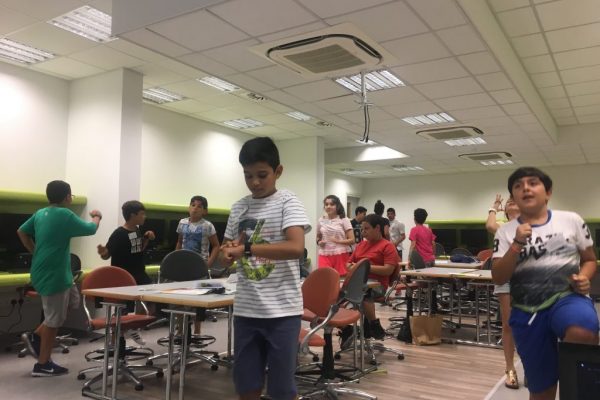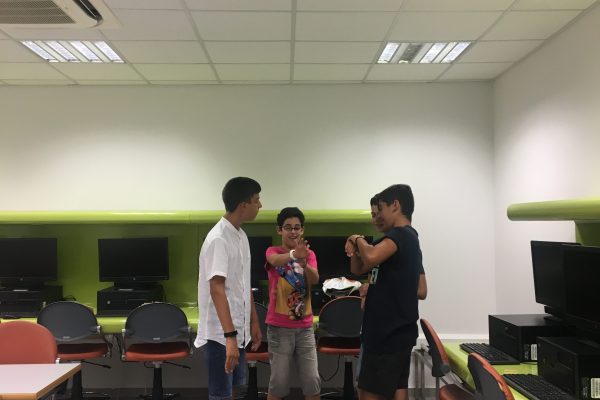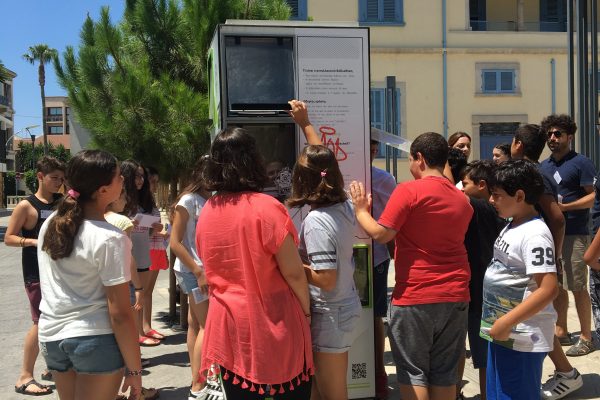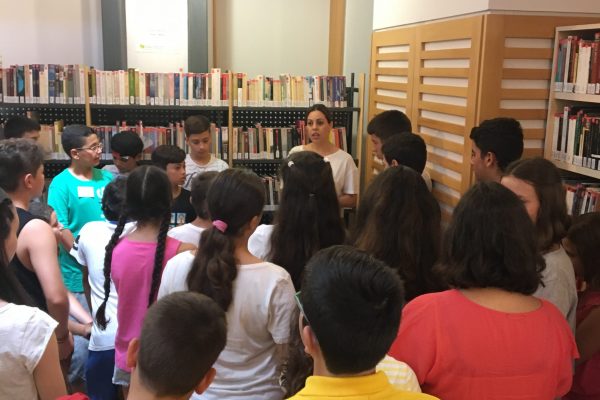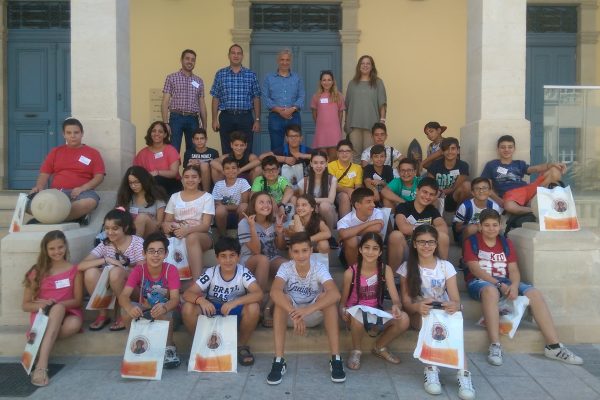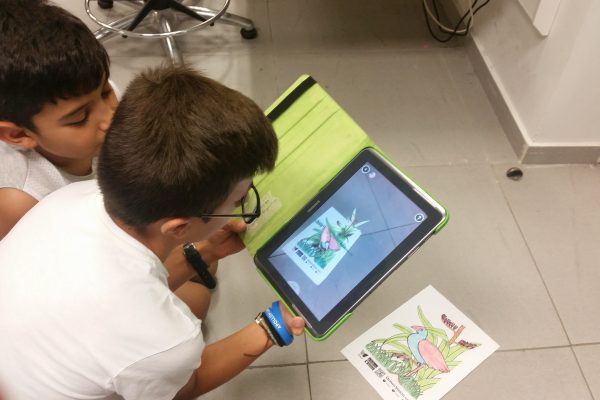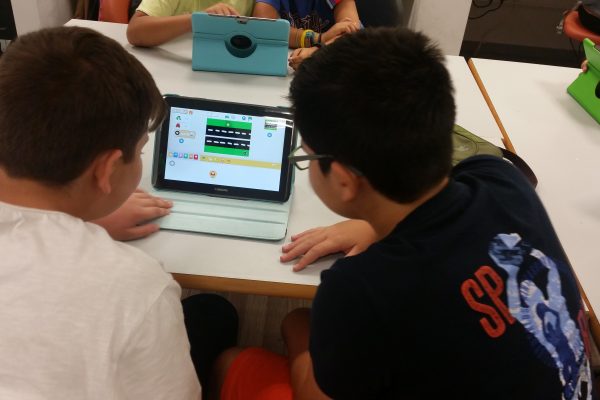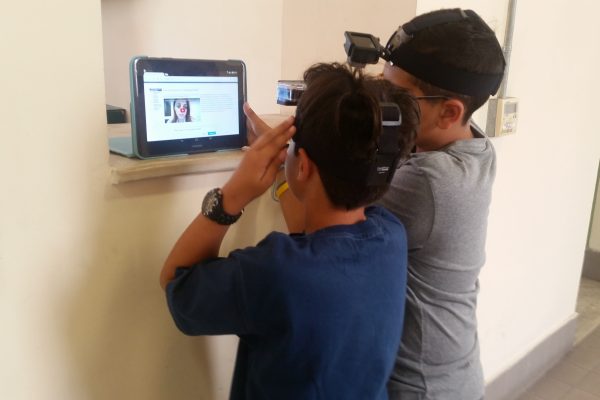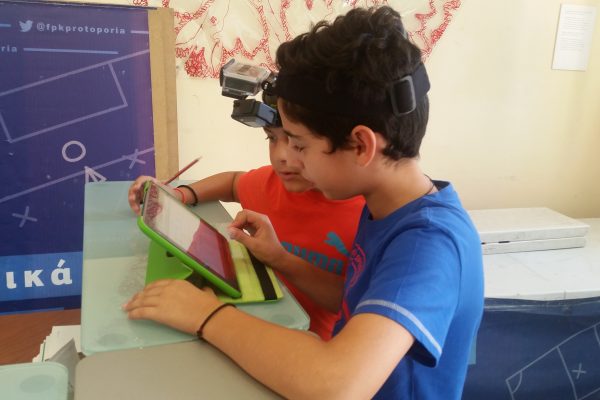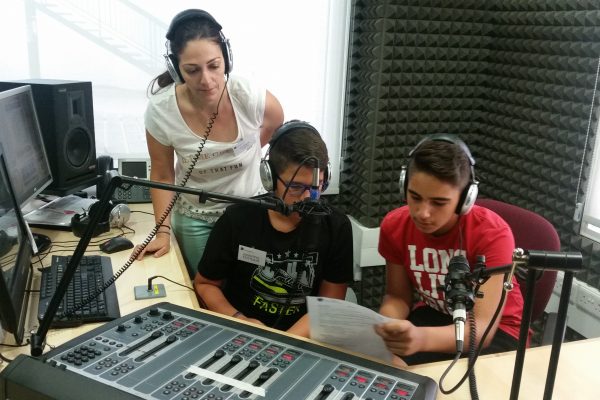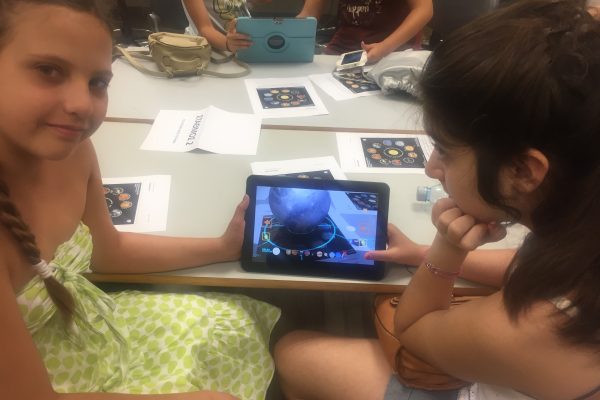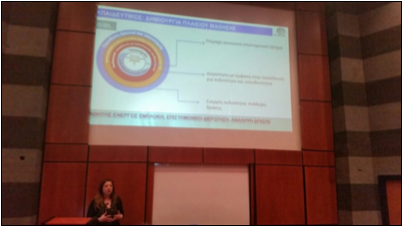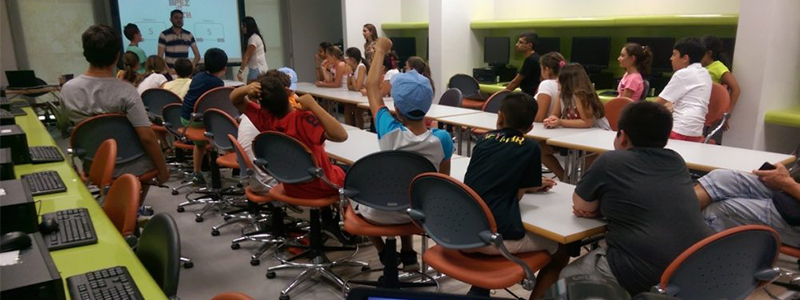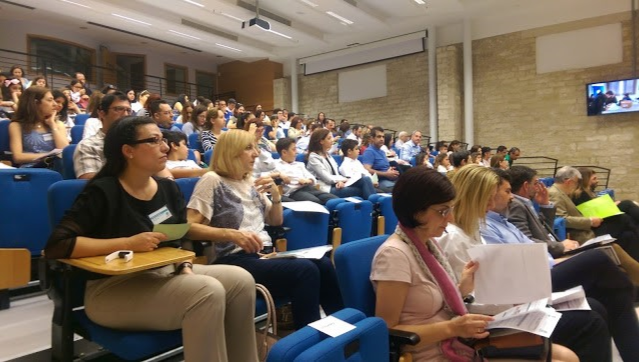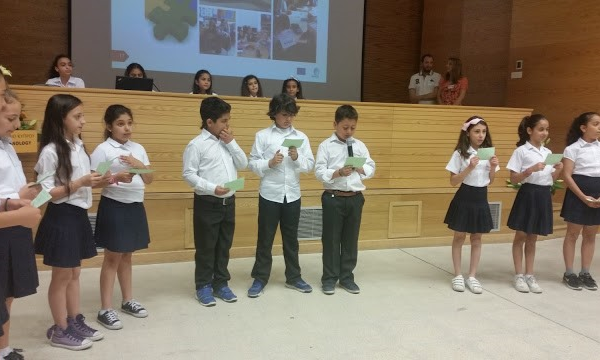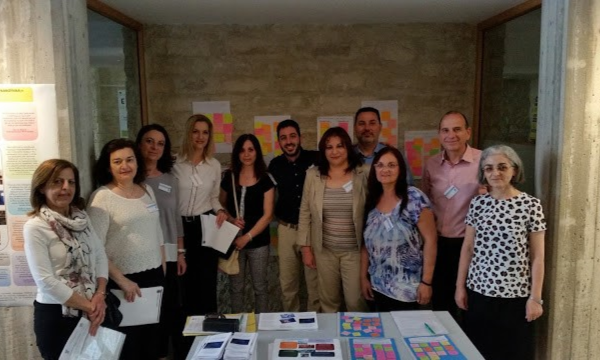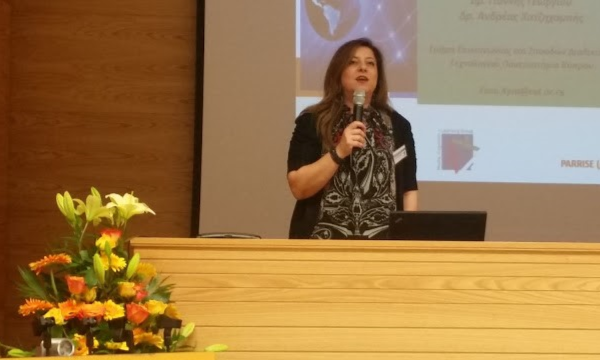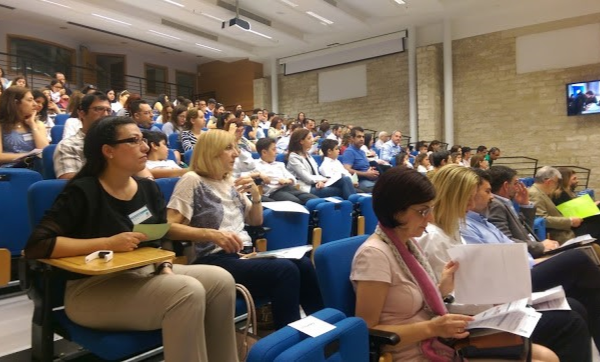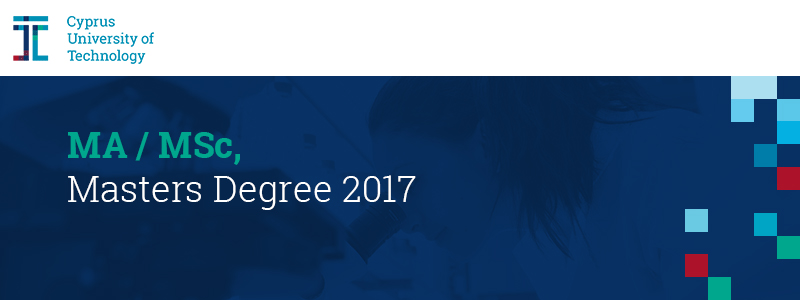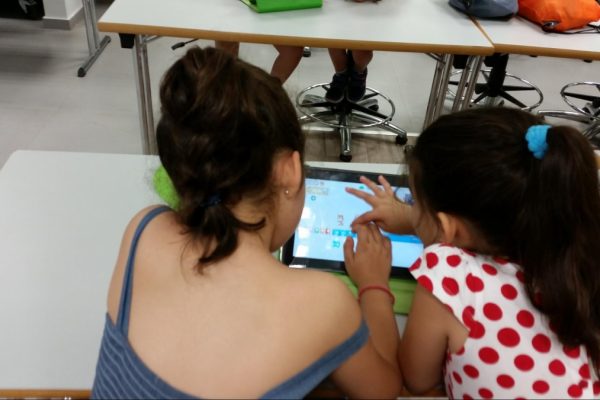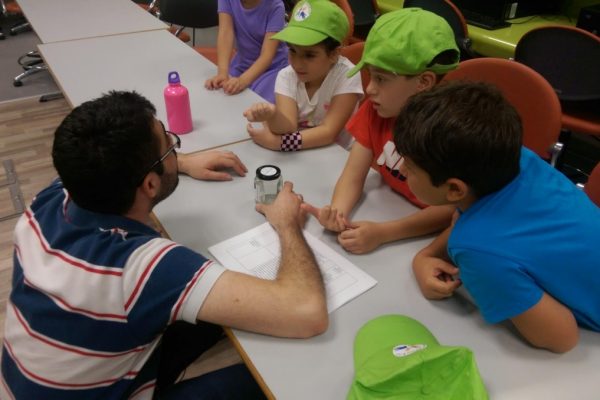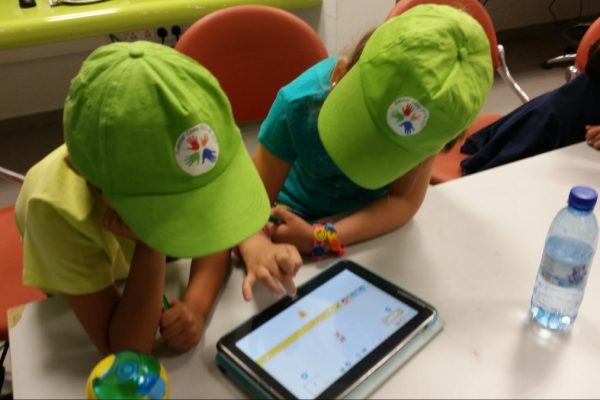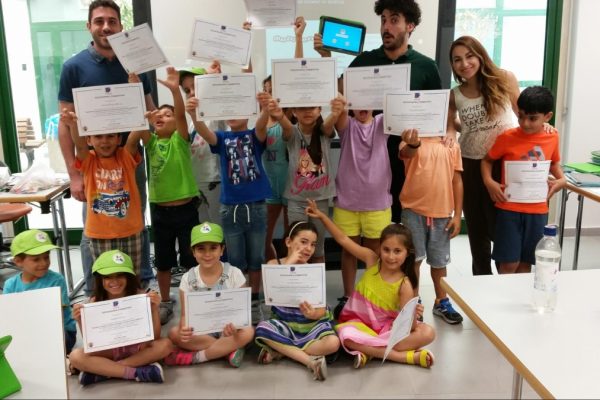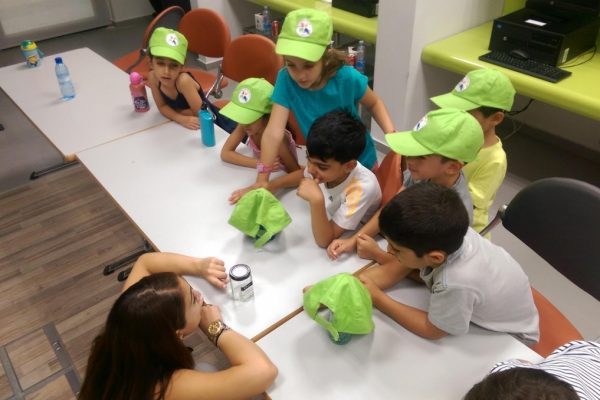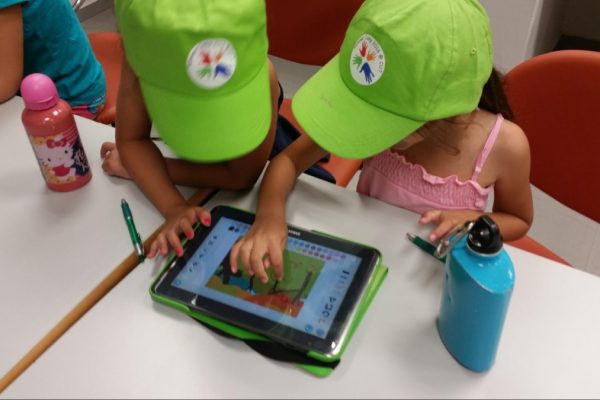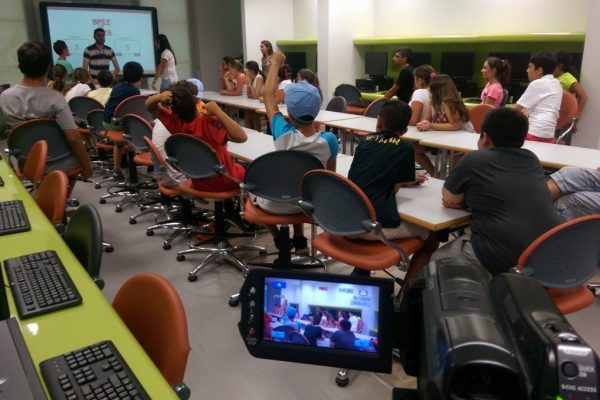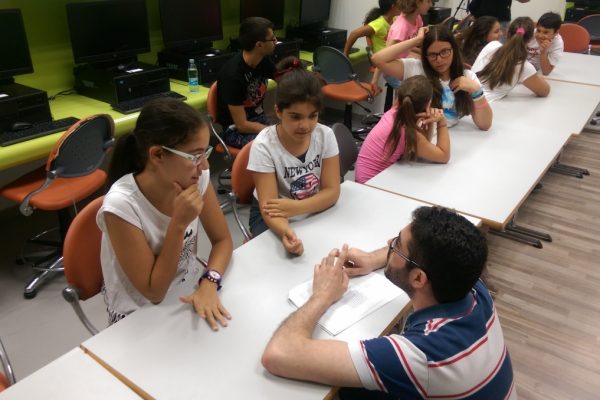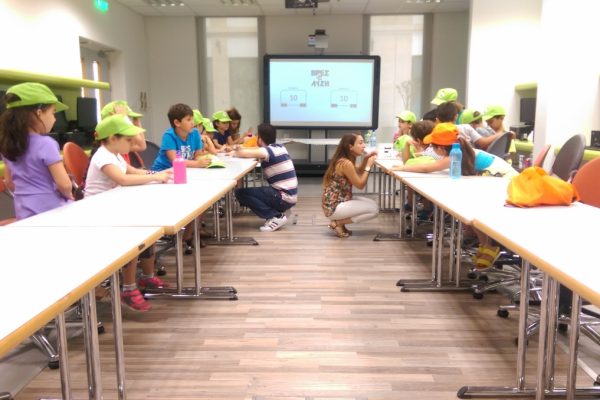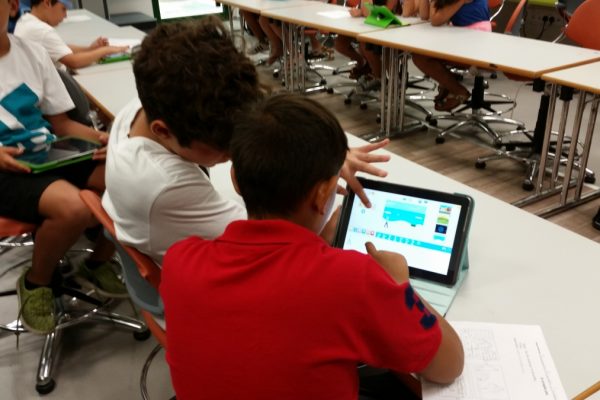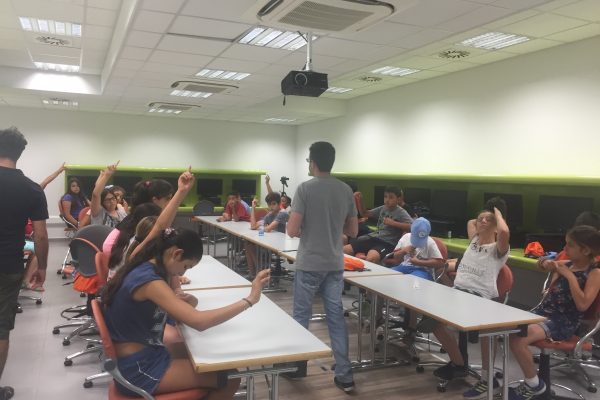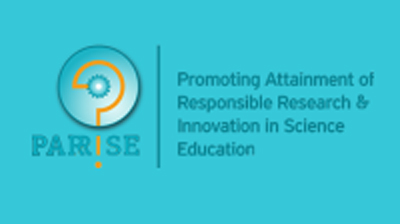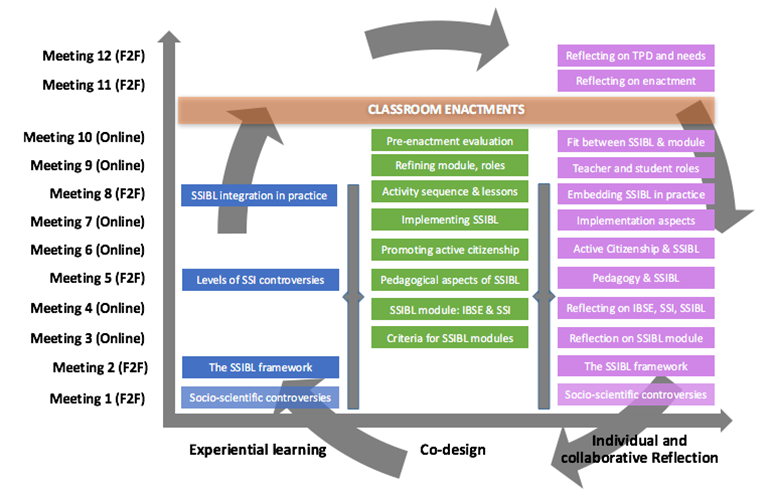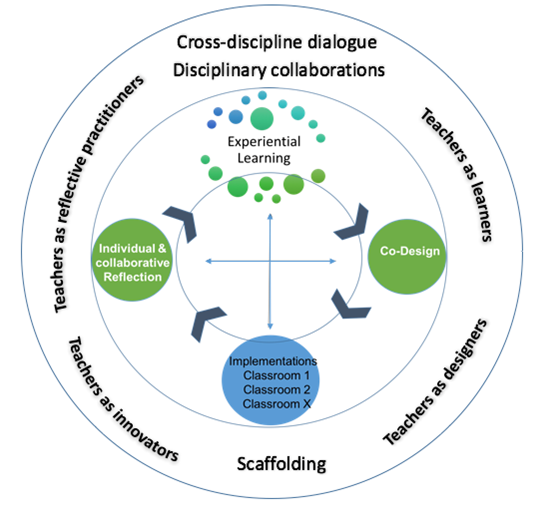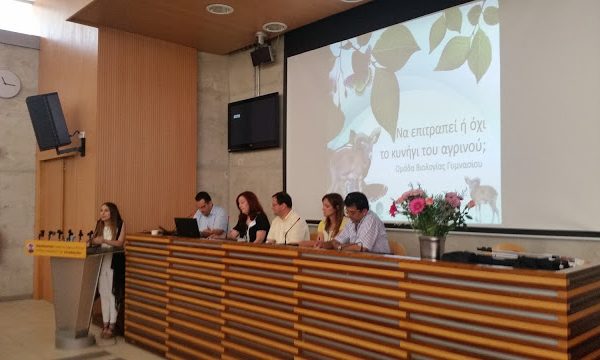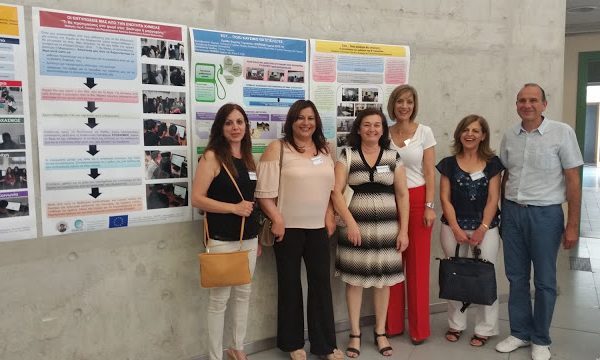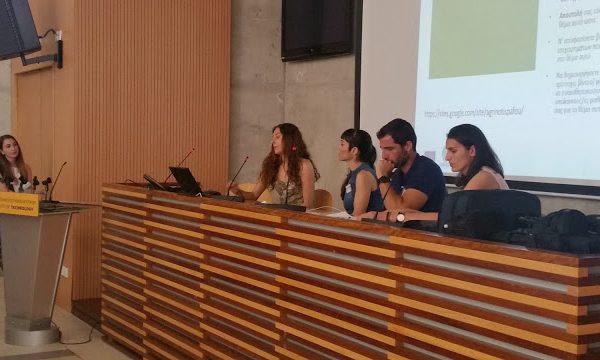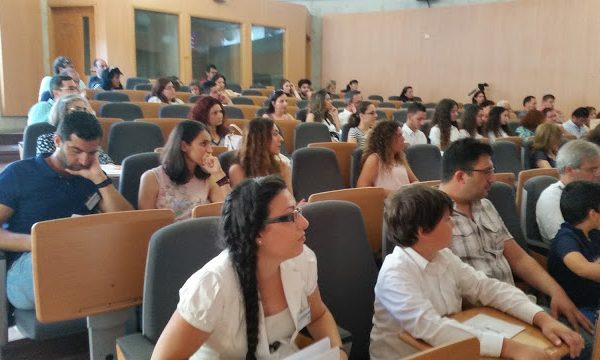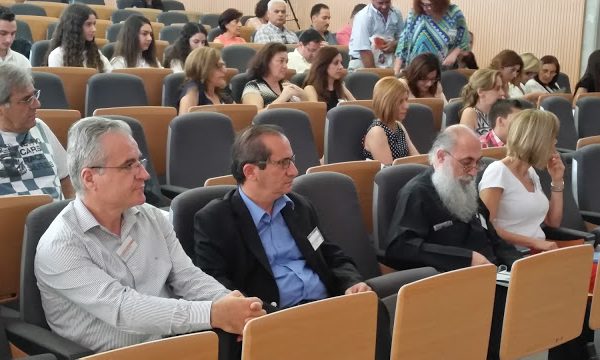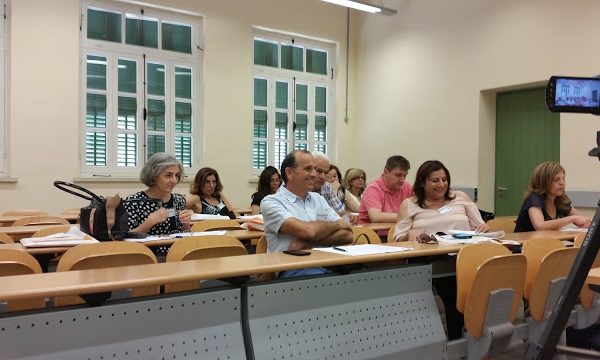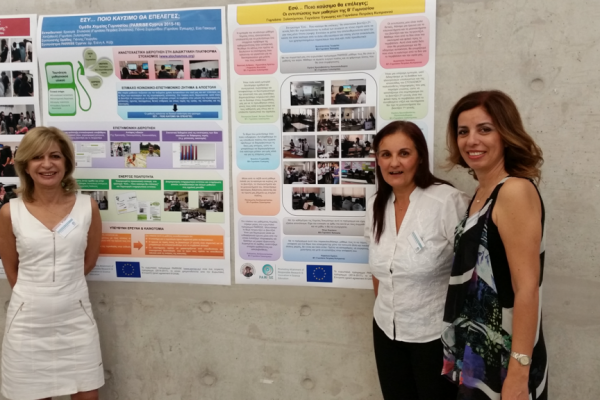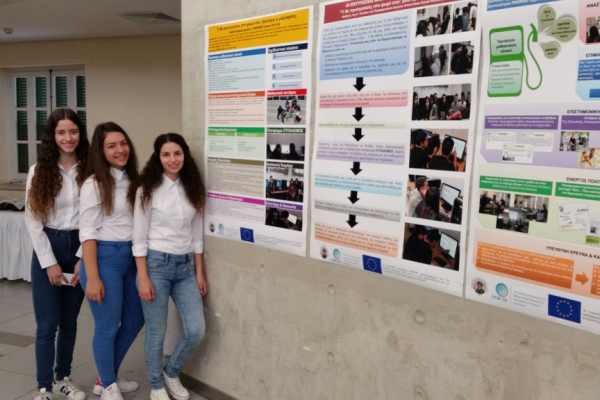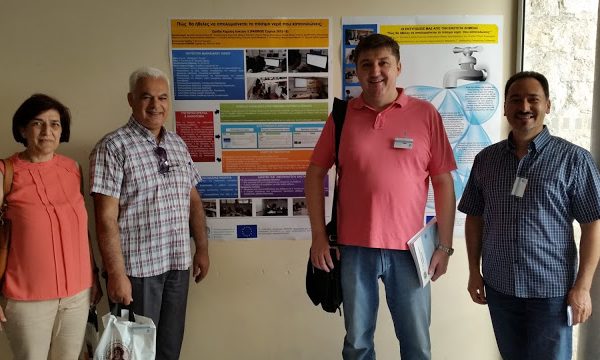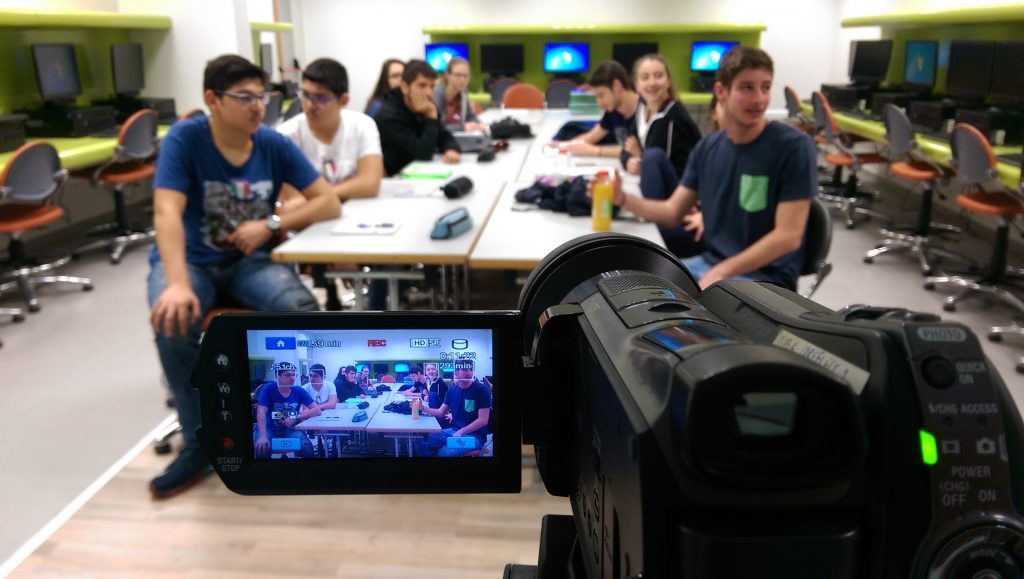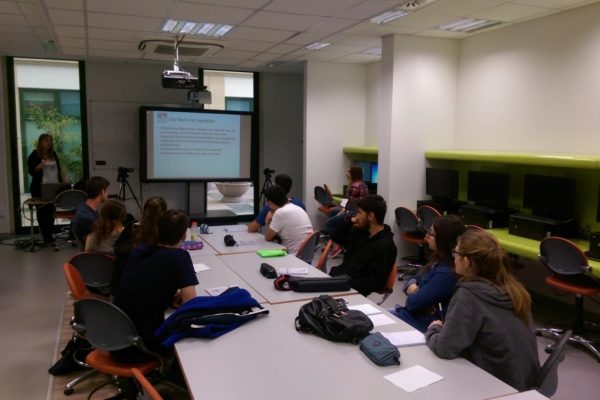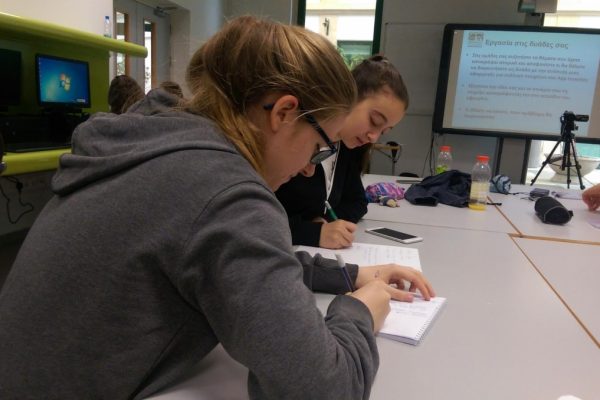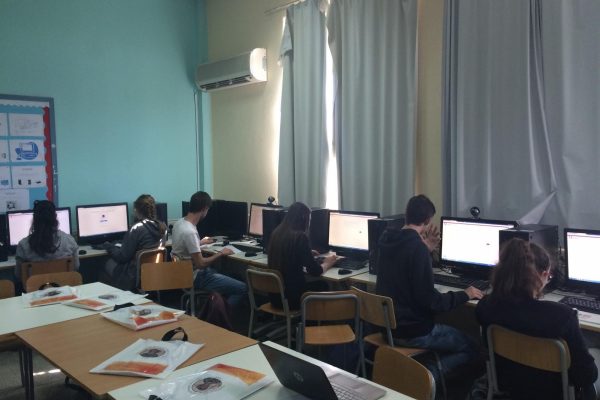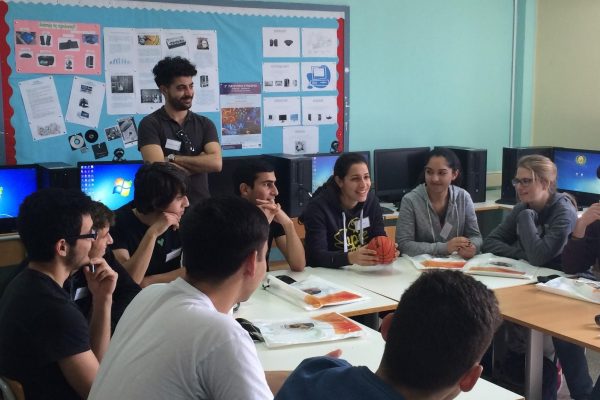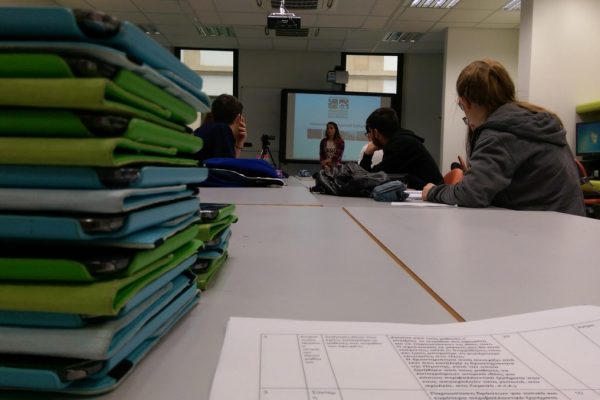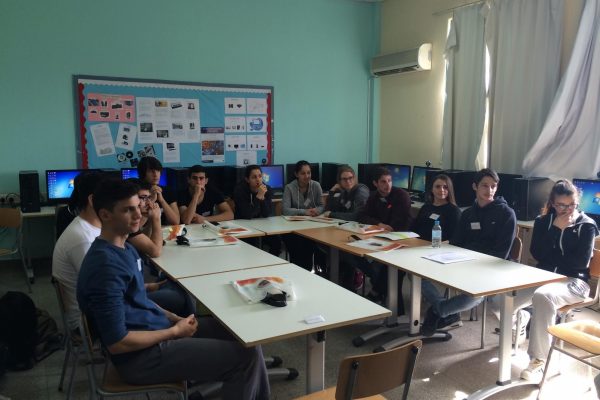
The Media, Cognition and Learning (MCL) research group organized a five-day summer club for primary and secondary school students from 17-21 July 2017. The overarching goal of the summer club was to provide students the chance to interact with innovative learning technologies. A total of 30 5th-8th graders participated in the summer club, and were involved in various fun and learning activities, some of which are described below.
Meeting with the Rector of the University: During the first day, the participating students were welcomed by the Rector of the Cyprus University of Technology, Professor Andreas Anayiotos. As part of their visit, the Rector explained to the students how the Cyprus University of Technology operates, and discussed how studying at the undergraduate, postgraduate or doctoral level of CUT works. During the second part of their visit the students had the opportunity to ask several questions in relation to university studies or to duties and responsibilities of the Rector.
Learning with activity trackers: An activity tracker was provided to each participating student during a sequence of learning activities, to interact with and explore its capabilities. As part of these learning activities students also had the opportunity to perform several tasks using the activity trackers and engage with real-time data. Finally, students explored how can such technologies can help us learn more about the human body and proposed ideas about how they can be used in formal education.
Solving mysteries using Augmented Reality (AR) technologies: Students working in pairs used augmented reality apps to solve two problem-based cases for biology learning. During their investigation, students were asked to collect and synthesize virtual and real data and provide an evidence-based explanation of the problems.
Exploring Augmented Reality (AR) apps: Students explored some of the endless possibilities of Augmented Reality in various thematic areas and interacted with AR apps about the planetary system, famous monuments of the world, space ships and 3D drawing figures. During these activities they had the opportunity to experience the affordances of the AR technologies as an emerging technological field.
Becoming radio producers: A unique opportunity was given to the participating students, since they had the opportunity to visit the CUT radio broadcasting university station (95,2 FM). During their visit, and with the help of a CUT radio producer, students produced various radio spots which were performed live from the studio to the CUT radio audience.
Designing digital projects: Students developed their own digital projects using the Scratch Jr application, a mobile application for enabling young children to easily learn programming and create various digital projects such as digital games or interactive stories and animations.
A closing party to thank all students for their participation, was organized during the last day of the summer school. The party included pizza, jokes, riddles and songs!

